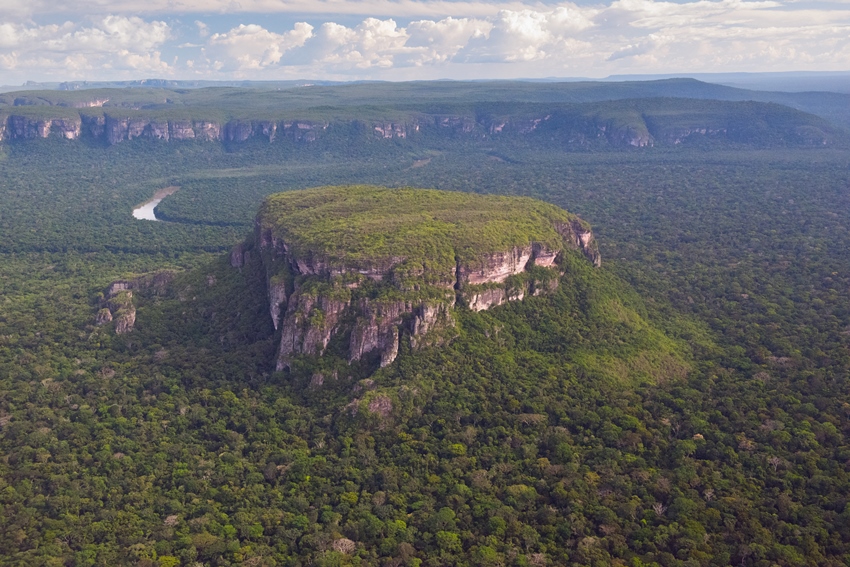Achieving peace, truth, reconciliation, and justice in Colombian protected areas
In 2016, the Colombian Government signed a peace agreement with the FARC (Revolutionary Armed Forces of Colombia) guerrillas. This agreement represented a very important and significant step towards the objective of environmental sustainability that the Sustainable Development Goals pursue. The agreement included six points of future work, one of which is exclusively related to the creation of victim protection mechanisms. These mechanisms recognise that the armed conflict, which had multiple causes, produced significant suffering and damage to the population of the country.

Photo: IUCN / Charles Besancon
The main victim protection mechanism in that agreement is the ‘Comprehensive System of Truth, Justice, Reparation, and Non-Repetition’, which includes a special court, a truth commission, and a search unit for missing persons. These entities collect information from government entities and victims' organisations to fulfil their mission.
In order to be recognised as victims in this system, a group of Park Rangers was formed by a number of National Natural Parks officials. This was part of a strategy to achieve truth, justice, and reparation around of the events during the armed conflict in relation to their conservation work. These events included:
- 19 murder cases;
- one case of disappearance;
- one case of exile;
- forced displacement;
- threats, extortion;
- kidnapping;
- denouncement;
- discrimination;
- harassment;
- events that have caused psychological damage (uprooting, depression, anguish, delusions of persecution), economic damage and family disintegration;
- loss of good name, honor and dignity.
Additionally, the nature present in the protected areas of Colombia’s National Natural Parks has been degraded in a multitude of ways. Minefields have been laid, illicit crops have been planted, illegal mining operations have been developed, dangerous substances dumped, ammunition deposited, sites have been bombed, burned, and cut down, roads built illegally, illegal invasions and encroachments have been promoted, many species of fauna and flora have suffered merciless predation and trafficking, and there are high levels of deforestation and fires. These traumatic events have caused water and soil contamination (some of which is irreversible), fragmentation of ecosystems, disappearance of species, a decrease in the quality and quantity of ecosystem services, as well as increased risks due to climate change, health, and technology.
A comprehensive report called "The Rights to Truth, Justice, Reparation and Non-repetition of Nature, the Territory and the Collective of Park Rangers” was presented on 6 November 2020, during the commemoration of the International Day for the Prevention of Environmental Exploitation in the Framework of Armed Conflicts. This report included information on serious crimes and violations of fundamental rights committed against the group of park rangers and the protected areas of the National Natural Parks system, and reasonings to support the idea that both the park rangers and the parks are to be considered as collective victims of the internal armed conflict in Colombia. As the voice of the environmental victims of Colombia, it gives an account of the testimonies about the crimes and violations of fundamental rights committed against the group of Park Rangers and against the protected areas of the National Natural Parks System.
This represents the first national effort to include nature and environmental defenders as victims of the armed conflict, making it an innovative topic both domestically and internationally. We consider it to be a historic event in the consolidation of global environmental peace, and a guarantee of the continuous commitment to the conservation of biodiversity in the country.
- Julia Miranda Londoño
Deputy Chair of WCPA and Director General of the Colombia Natural National Parks Agency



